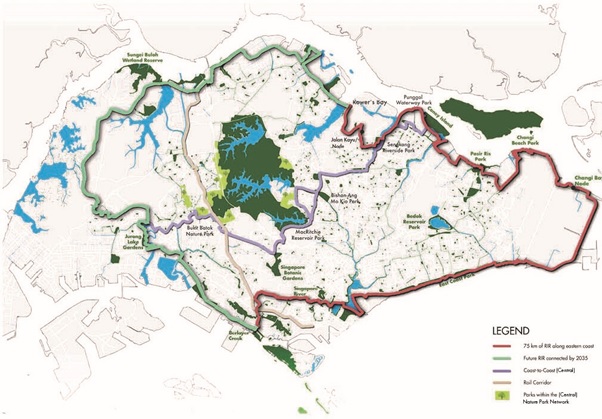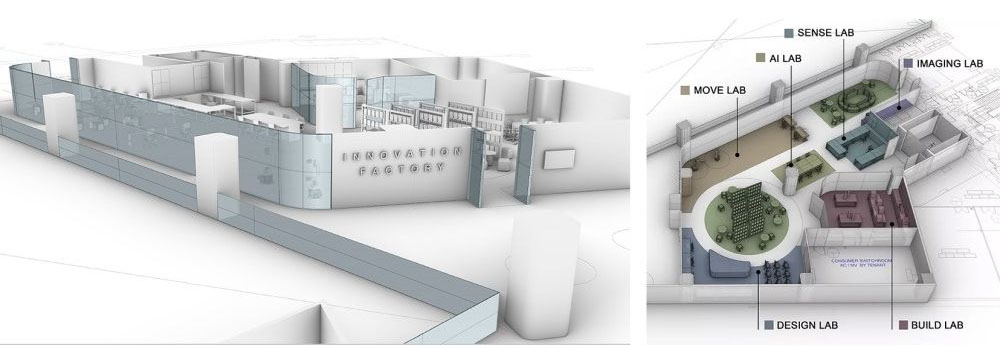The National Parks Board (NParks) opened the Centre for Wildlife Rehabilitation (CWR) today. The CWR provides veterinary care and rehabilitation for wild animals in Singapore and builds NParks’ expertise in the rescue, treatment and release of wildlife. It complements the work and expertise of our wildlife rescue partners such as ACRES and Mandai Wildlife Group, and strengthens our collaboration with the wildlife management industry. It also enhances NParks’ biosurveillance and wildlife population research capabilities, and is key to our community and science-based approach to wildlife management and conservation. As Singapore moves towards becoming a City in Nature – a key pillar of the Singapore Green Plan 2030, a national movement to chart our course for sustainable development – this will help to strengthen Singapore’s conservation of our natural heritage.
Since taking over animal-related functions in April 2019, including overall wildlife management, NParks has been consolidating our resources and enhancing our community and science-based approach to wildlife management and conservation. The new CWR is a vital part of this approach as it supports the entire process from the rescue of wildlife to treatment, rehabilitation and release, provides released animals with a better chance of survival in the wild, and enhances conservation of our biodiversity.
The opening of the CWR was officiated by Minister of State for National Development & Communications and Information, Mr Tan Kiat How.
Wildlife treatment and rehabilitation capabilities
As a facility dedicated to providing veterinary care and rehabilitation for wild animals in Singapore, the CWR is set up to receive wildlife rescued by NParks or NParks-approved private wildlife management companies. This includes wild animals such as mammals, reptiles and birds that may have been found injured or in distress after wandering into unfamiliar environments, and wild animals that have been abandoned.
The CWR houses a range of veterinary facilities such as holding, treatment and surgery rooms, x-ray equipment, an incubator and an oxygen cage, and is staffed by veterinarians who have been trained to handle wildlife found in Singapore. There are also specialised housing facilities at the CWR which allow us to better prepare the wildlife for release. They are customised for different animals to replicate their natural environment as closely as possible, and environmental enrichment is incorporated into the design to allow the animals to express their natural behaviour and reduce their stress in captivity. Altogether, these facilities and capabilities of the CWR allow us to provide in-house diagnosis, treatment and rehabilitation for injured or ill wildlife. NParks’ stepped-up capabilities will complement and enhance the work and expertise of our partners involved in wildlife rescue and rehabilitation, such as ACRES and Mandai Wildlife Group, and strengthen our collaboration with them.
The new Centre also plays a key role in supporting Singapore’s efforts to combat illegal wildlife trade. The illegal trade in wildlife disrupts ecosystems, affects biodiversity and threatens the survival of endangered species. As part of a multi-pronged approach to regulate and enforce against such trade, NParks monitors such activities and takes enforcement action against offenders. For example, through raids and sting operations to arrest those suspected of illegal wildlife trade activities. The exotic wildlife species taken in will then be cared for and rehabilitated at the CWR while the investigations and subsequent proceedings take place.
Enhancing biosurveillance and upskilling the wildlife management industry
The CWR complements NParks’ existing biosurveillance facilities such as the Animal Quarantine Centre and Centre for Animal & Veterinary Sciences in strengthening our biosurveillance system. This is critical in the management of emerging threats of animal and zoonotic diseases. Animals admitted into the CWR are examined and tested for diseases that are important both to wildlife health, and the health of domestic animals and humans. The results are then analysed to guide risk assessments and management measures to protect ecological and public health, such as vaccination programmes and biosecurity practices for animals. Our biosurveillance efforts allow us to identify potential animal and zoonotic disease threats, and to better monitor, respond and manage them accordingly to safeguard public and animal health.
In addition, the CWR will help in capability and capacity building for the wildlife management industry. Aside from being where wildlife management companies involved in capturing and handling wildlife hand over rescued wildlife to NParks, the CWR will be the training venue for staff from these wildlife management companies in the handling of wildlife and also to stay updated on best practices in wildlife handling. NParks runs the Animal Management Professional Certification Programme, which was launched in August 2020 to raise industry standards and better equip workers involved in capturing and handling wildlife with the skills to ensure public and personnel safety as well as animal welfare. With the new CWR, the training for both theory and practical sessions of various modules under the Programme will be conducted at one location. This reduces the need to transport animals required for the practical sessions to external locations. The CWR also includes indoor and outdoor areas with the necessary space for safe manoeuvring and secure handling of the wildlife by trainers and participants.










